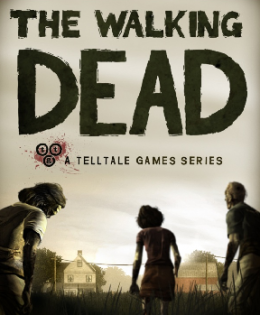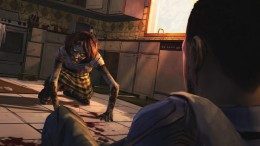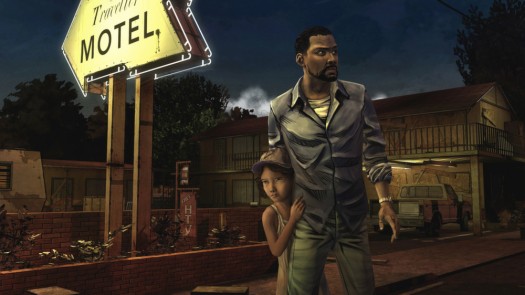 I like to think that Robert Kirkman’s The Walking Dead is an exploration of character and violence more than it is some grim zombie fairy tale. Its cast is as beastly as its undead. Action is sudden, terrifying, and distressing. Decisions are made in bursts of lust and blood, greed and anger, brains and preservation. This miasma is revealing: we’re not good people. This makes for interesting reading, as you get to glimpse into what makes us forget who we want to be, and become what we actually are.
I like to think that Robert Kirkman’s The Walking Dead is an exploration of character and violence more than it is some grim zombie fairy tale. Its cast is as beastly as its undead. Action is sudden, terrifying, and distressing. Decisions are made in bursts of lust and blood, greed and anger, brains and preservation. This miasma is revealing: we’re not good people. This makes for interesting reading, as you get to glimpse into what makes us forget who we want to be, and become what we actually are.
The first episode of Telltale’s The Walking Dead plays like a celebration of the comic and its themes. It adheres to the Kirkman’s vision, showcasing the series’ violence and grit, choice and character. You’ll make painful decisions, interact with broken people, and participate in some of the most brutal, real-world action that’s ever been shown in a video game. In under an hour of play with a Mac build of the title, I have become one of The Walking Dead’s characters: a liar and a monster in the face of danger.
You’ll play through a vehicle named Lee, a loosely defined character with a mysterious history and an innocence about him. The opening takes place right before the world goes to hell. Lee is in the back of a police car, handcuffed, talking to the officer driving when, suddenly, the officer strikes a walker with his vehicle. The crash is stomach-churning, and the action after is intense. Lee survives, but finds himself in a world where the dead shamble and the living sprint.
Lee goes on to meet a few characters, including a little girl who becomes something of a companion. As you progress, you’ll make choices that each character will “remember," perhaps coloring the events in later episodes as you jump in and out of alliances with others, react calmly or violently, or lie. Thus far, I don’t have a great sense of how anything that I’m saying or doing will play out, and that’s perhaps The Walking Dead‘s biggest upcoming challenge: these choices need to feel meaningful one way or another.
Mechanically, the game controls like a cross between Jurassic Park and Heavy Rain: you manually move Lee in very specific environments, searching for items and clues that will inevitably lead you to the next story point. The Walking Dead doesn’t rely on puzzles as a bridge. Instead, it leverages Lee’s confusion and desire: you find things for people or for Lee. Action segments challenge you to react fast, as you line up reticules or tap buttons to complete QTEs. The dialogue system, on the other hand, presents multiple flavors of response and a timer forces you to make snap judgements and decisions.
 I appreciate the intensity of the writing. The Walking Dead invites you to explore a grim and violent world spotted with people who actually feel like people and react in extreme ways under the pressure of survival. Being able to lie to cover things up or get an “in" with a group of better equipped survivors, or save one person over another are the game’s strongest points of narrative design. I’ve been swaying between unnerved or moved as I progress, and this emotional connection is what appeals to me the most about the game as a whole.
I appreciate the intensity of the writing. The Walking Dead invites you to explore a grim and violent world spotted with people who actually feel like people and react in extreme ways under the pressure of survival. Being able to lie to cover things up or get an “in" with a group of better equipped survivors, or save one person over another are the game’s strongest points of narrative design. I’ve been swaying between unnerved or moved as I progress, and this emotional connection is what appeals to me the most about the game as a whole.
We don’t know how the iPad (or iPhone) version of The Walking Dead will control, though the expectation is that it’ll work similarly to how Jurassic Park did with its basic and functional touch, tap, and swipe controls. We’re also not so sure when we’ll see this episode on our devices of choice. Rumor has it that the iOS versions have been delayed beyond its planned May launch. We’re checking on that.
Regardless, you’ll want to keep up with its progress. Provided Telltale will continue is trend of launching really, actually good ports of its games on iOS post-Jurassic Park, this is something I feel like could be required play material.
All of the assets in this article are from the PC, Mac, Xbox Live Arcade, or PSN version of the game. If it means anything to you, we played the Mac version with medium settings and it still looked fantastic. We expect this level of quality, at least, on the new iPad.
